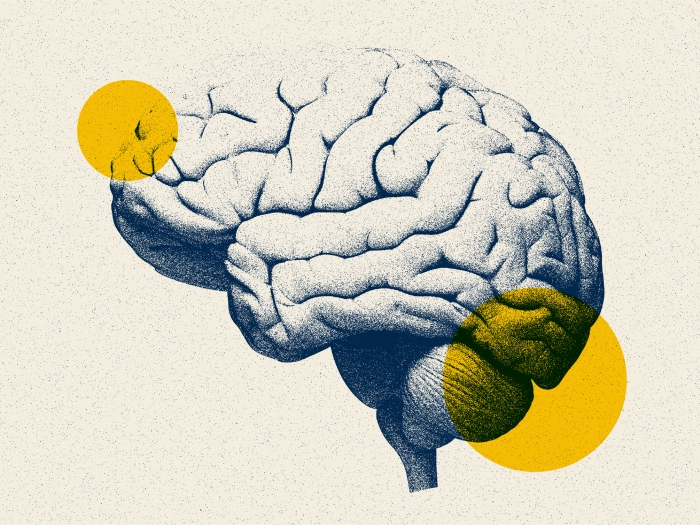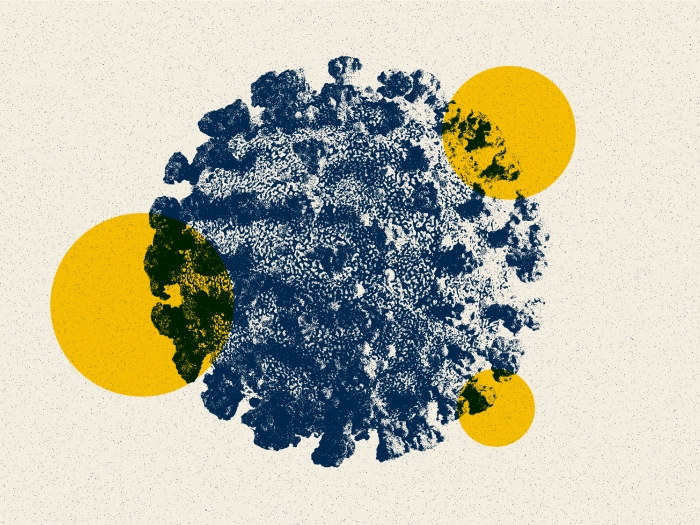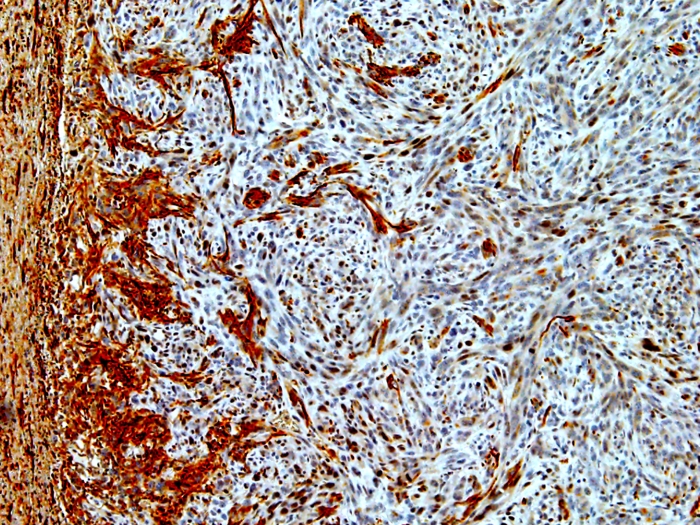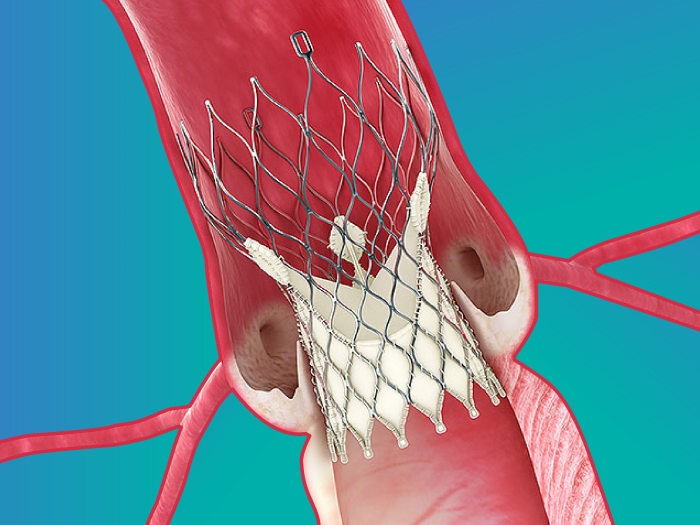The results suggest that graduated doses of peanut protein powder could help protect against the consequences of accidental allergen exposure.
7:00 AM
Author |
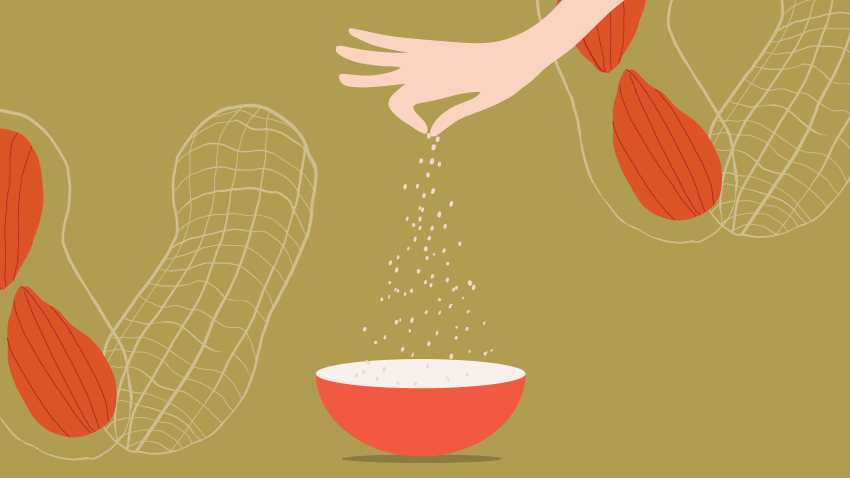
In a clinical trial, researchers did what might seem like a recipe for disaster: administer tiny daily doses of peanut protein powder to patients with peanut allergies. The amount was gradually increased over six months to build tolerance.
MORE FROM THE LAB: Subscribe to our weekly newsletter
Far from a catastrophe, the results released in February could give new hope to the millions who are highly allergic to peanuts.
Slightly more than two-thirds of the 554 participants ages 4 to 17 could consume 600 mg of protein powder (equivalent to about two peanuts) without incident by the end of the yearlong trial. Some people could consume nearly twice that amount: 1,000 mg.
The experimental treatment, still awaiting Food and Drug Administration approval, is designed to protect people with peanut allergies in case of accidental ingestion — and not provide clearance to, say, devour a peanut butter sandwich.
Still, the implications should give families and health care providers reason to be optimistic.
"We saw marked improvement," says Georgiana Sanders, M.D., an allergist at Michigan Medicine and a research faculty member of the university's Mary H. Weiser Food Allergy Center, which was one of the 69 sites participating in the nationwide clinical trial.
The advancement comes amid growing need. Childhood peanut allergies have increased 21 percent since 2010, the American College of Allergy, Asthma and Immunology reported last year. Put another way, nearly 2.5 percent of U.S. children are now allergic to peanuts.
Having a proven defense via the peanut protein powder immunotherapy, Sanders says, could help families avoid life-threatening trouble in a food landscape where peanut products and residue — often harder to identify than other allergy trigger foods such as shellfish — lurk in many products.
And, just as important, it might provide peace of mind.
"Anxiety and depression can occur with food allergies," Sanders says. "If you can take away some of that and make people feel they can function better in the world, that's huge."
Testing for trouble
Conducted by the California biopharmaceutical company Aimmune Therapeutics, the clinical trial was a double-blind study. That means neither participants nor providers knew whether a patient received peanut powder or a placebo.
Powder would be mixed with food such as applesauce or pudding, with patients keeping daily food diaries throughout.
SEE ALSO: If a Child Snores, Is Surgery the Answer?
All participants had their powder allotment increased every two weeks. Each was required to consume the first higher dose at a doctor's office so staff could respond quickly if negative reactions occurred — an approach no different from any "food challenges" that involve patients consuming suspected problematic foods under supervision, Sanders says.
Ranging in severity, such reactions could include hives, swelling of the lips, eyes, tongue or throat, vomiting, diarrhea and hypotension.
"Whether it's an allergy to a food, a drug or a bee sting, you look for the same clinical reaction," Sanders says.
Those symptoms weren't absent in this trial. Of all patients receiving the peanut protein powder, 12 percent withdrew early because of adverse effects — including 3 percent who experienced anaphylaxis.
Nonetheless, the results far exceed federal standards, which require a 15 percent biostatistical cushion between drug and placebo recipients. Sixty-seven percent of those on peanut powder doses ultimately tolerated the 600 mg dose; 4 percent of placebo patients could.
A path to protection
Sanders notes that much of immunotherapy remains a mystery — and that food allergies have no known cure. But there are two commonly accepted hypotheses on why the peanut powder treatment was widely effective.
Gradual doses may teach the body not to make reaction-producing antibodies after peanut exposure. Or perhaps it helps form different antibodies that block the existing ones.
Beyond the FDA approval, other questions remain. It's uncertain whether a patient would need to take the powder indefinitely or if the protection remains intact after dosing stops (the latter scenario is unlikely, Sanders says).
SEE ALSO: The Broader Lessons of the EpiPen Debate
Although the age range of participants spanned more than a decade, she notes that more research could be done to see if starting doses in young children offers more benefit.
Regardless of a patient's age, care could be costly: Aimmune's chief executive recently told The Associated Press that he expects the first six months of treatment to cost $5,000 to $10,000.
It isn't the only effort in development. French drug company DBV Technologies is using epicutaneous (patch) immunotherapy to protect against peanut allergy. As of late last year, tests showed a positive effect — but the biostatistical cushion between the patch and placebo results was too narrow to warrant approval.

Explore a variety of healthcare news & stories by visiting the Health Lab home page for more articles.

Department of Communication at Michigan Medicine
Want top health & research news weekly? Sign up for Health Lab’s newsletters today!


